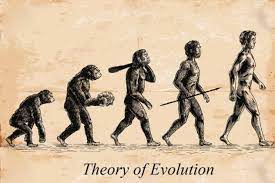Darwin’s Theory Of Evolution : Voiced Against NCERT Decision

The scientific community voiced against NCERT’s decision to remove Darwin’s theory of biological evolution from Class 10 CBSE textbooks.
- Charles Darwin is known as the father of evolution due to his contribution to the establishment of the theory of evolution.
Darwin published his concept of evolution in his book entitled “The Origin of Species”. - Ideas by Darwin on the theory of natural selection:-
- The species keep on changing or evolving with time.
- As the environment changes, the requirements of the organisms also change and they need to adapt to their new environment.
- According to the natural requirements, the phenomenon of change over a period of time is known as adaptation.
- According to Darwin’s theory, only higher changes tend to get naturally selected and lower ones are automatically eliminated.
- This leads to progressive evolution and not all the adaptations are able to contribute.
- All the organisms had a common ancestor at some point in time and this kept on diverging since then according to Darwin.
- As per Charles Darwin, evolution is a gradual and slow process.
Darwinism consists of five principles :
- Over-production or prodigality of over-production: Many more individuals are born in each generation that will be able to survive and reproduce.
- Variation and Heredity: There is natural variation among individuals of the same species. Many of the favourable adaptations are hereditary and are passed on to the progeny of future generations.
- Struggle for existence: Organic beings increase by a geometrical ratio, while food production only increases in an arithmetic ratio such that in a very short time, an area will be overpopulated with any one species unless something happens to check the increase. This struggle for existence is threefold as given below:-
- Intraspecific struggle: The Intraspecific struggle is found among Individuals of the same species.
- Interspecific struggle: – It is found among organisms of different species living together.
- Struggle with the environment: Living organisms struggle with adverse environmental conditions like floods, cold waves, heat waves, and earthquakes, etc.
- Survival of the fittest or natural selection: Individuals with certain Characteristics have a better chance of surviving and reproducing than others with less favourable ones.
- Modifications of species: Gradual modification of species could have occurred over long periods of geological time through additive processes occurring in the past in the same manner as they are occurring in the present.




